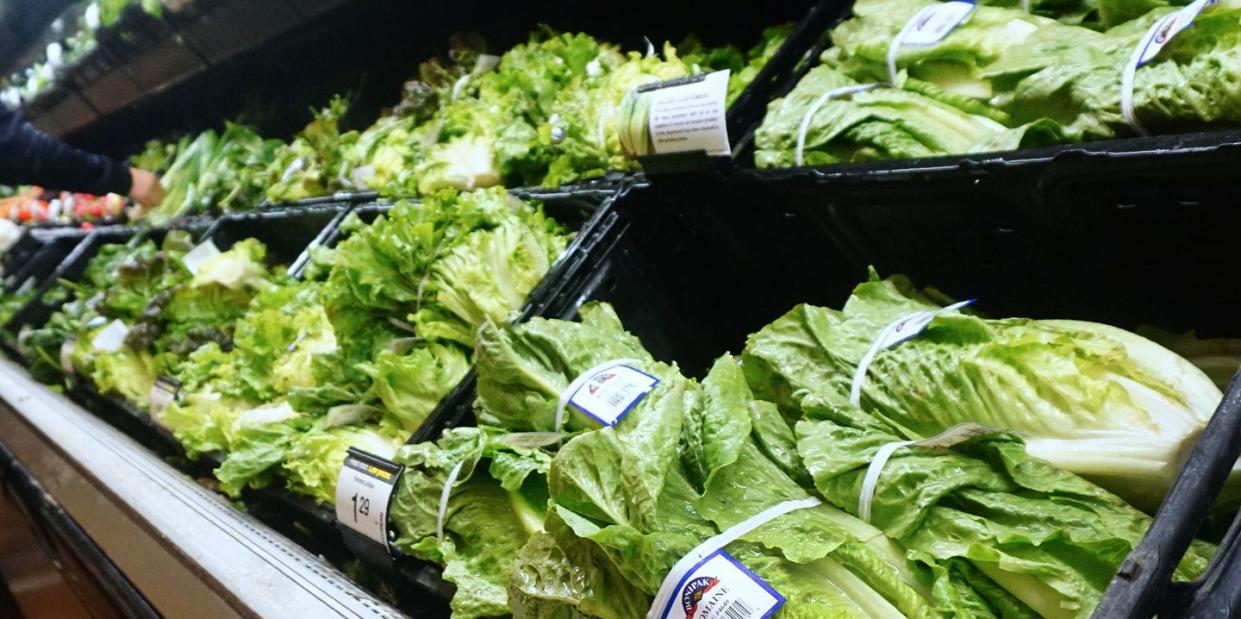FDA Recalls Romaine Lettuce Heads in 19 States Due to Possible E. Coli Contamination

The FDA has announced a recall of tens of thousands of romaine lettuce heads due to potential E. Coli contamination.
Nineteen states plus Puerto Rico received the affected lettuce, which is sold under the brand name Tanimura & Antle.
No illnesses or deaths have been reported yet.
The Food and Drug Administration has announced a recall of romaine lettuce heads due to potential E. Coli contamination. Stores in 19 states and Puerto Rico received the affected produce.
This recall applies to single packaged heads of lettuce from the brand Tanimura & Antle with a “packed on” date of October 15 and October 16. Nearly 3,400 cartons, which contained 12 to 24 heads of romaine each, were potentially contaminated. No other products or package dates have been recalled so far.
Possibly contaminated lettuce was sent to Arkansas, Arizona, California, Illinois, Indiana, Massachusetts, Missouri, Nebraska, New Mexico, North Carolina, Ohio, Oklahoma, Oregon, South Carolina, Tennessee, Texas, Virginia, Washington, Wisconsin, and Puerto Rico. There is no list of specific grocery stores that carried the lettuce yet.
The romaine lettuce recall “is based on the test result of a random sample collected and analyzed by the Michigan Department of Agriculture and Rural Development as part of their routine sampling program,” the FDA reports. Because one head tested positive for E. Coli, the rest of the lettuce should be thrown out.
E. Coli is a family of bacteria that can cause symptoms like severe stomach cramps, fever, fatigue, loss of appetite, vomiting, and diarrhea, which is often bloody, according to the Centers for Disease Control and Prevention. Most people recover within five to seven days, but more serious infections can become life-threatening and cause severe kidney damage.
Most people start to feel sick three or four days after contamination, but symptoms can set in anywhere from one to 10 days after exposure. If you are experiencing any of these symptoms and suspect you consumed the affected romaine lettuce, contact your doctor.
“It is unlikely that this product remains at retail establishments due to the shelf life of lettuce and the number of days that have passed,” the FDA statement reads. If any retailers or consumers still possess the affected romaine, they should immediately dispose of the lettuce and be sure not to consume it.
Support from readers like you helps us do our best work. Go here to subscribe to Prevention and get 12 FREE gifts. And sign up for our FREE newsletter here for daily health, nutrition, and fitness advice.
You Might Also Like

